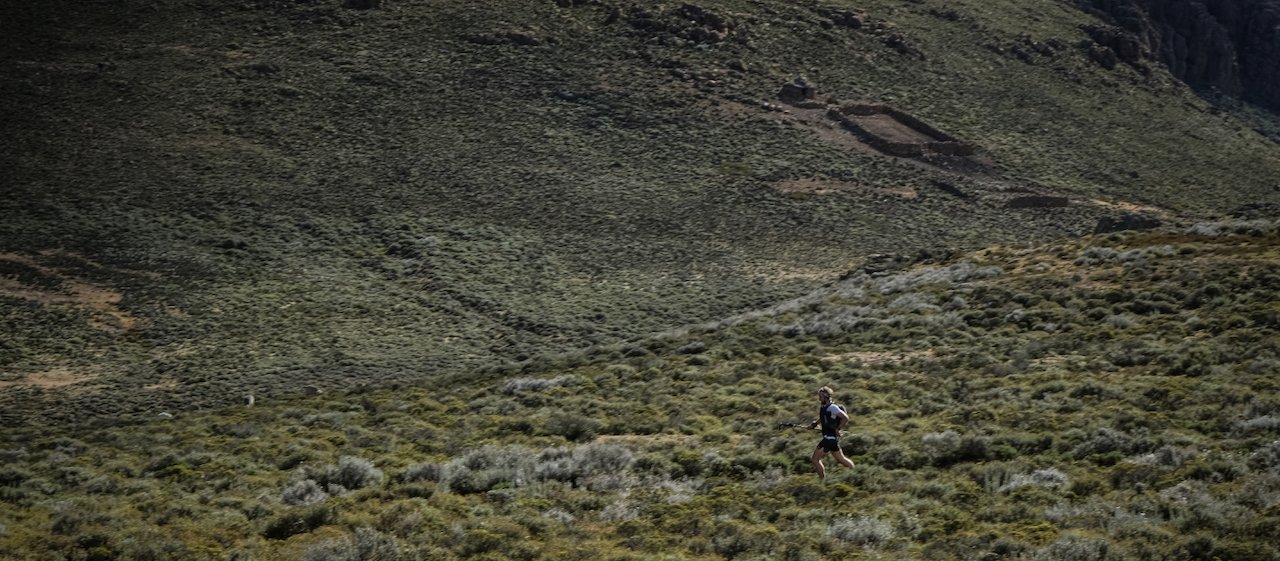Compulsory Kit
Carrying, and using, the right gear, nutrition and hydration is the single most important element of DGT-Run for all athletes. The route traverses a mostly uninhabited and hostile natural environment and runners will be out on course for between 40-100 hours, all things going well. Sometimes they don’t. The duration and nature of the event means that multiple weather patterns and changes might be experienced and all possible outcomes need to be considered. It can go from sunny, 30 degree C temperatures to sub-zero, windy, rainy, stormy and snowy weather in a matter of hours.
There will be multiple safety teams stationed in the mountains but it is vital to understand that in the event of an injury it may be many hours after being notified before they can reach you, either by foot or on horseback.
Safety teams will be carrying all their own gear as well as rescue ropes and medical equipment. Helicopter evacuation is not guaranteed, or even likely in many circumstances, and the chances of your spending another night in the mountains with your rescuer before being evacuated are high.
In light of this absolutely no short-cuts will be permitted when it comes to Compulsory Gear and the Gear Check that will take place at Registration. If any runner is missing an item of Compulsory Gear they will not be permitted to register until they have produced it. Any athlete found not to be carrying an item of Compulsory Gear out on course will be disqualified and asked to leave the race route immediately. This will be via a long descent of the nearest pass.
We cannot overemphasize the importance of the Compulsory Kit List - it really could be a matter of life and death.

Provisional Compulsory Kit List (subject to amendments)
Per Person
Valid Passport and certified copy (together with Lesotho visa if required)
Backpack
Head torch (waterproof)
Spare batteries for head torch - no rechargeable batteries - sufficient for 4 nights use (regardless of your estimated race time)
GPS unit (watches allowed)
Spare batteries for GPS units / charging for GPS watches - sufficient for 120 hours use (regardless of your estimated race time)
Baselayer top and bottom - must be made of either synthetic or merino wool; no cotton base layers allowed
Mid layer top - minimum weight 150g (recommend carrying at least two mid layer tops)
Waterproof top - with sealed seams and hood - Waterproof Rating must be > 10,000mm
Waterproof bottoms - with sealed seams - Waterproof Rating must be > 5,000mm
Sun hat
Gloves - recommend two pairs - inner layer and water/wind proof outer
Beanie or buff for head warmth
2 x buff (excluding buff for head)
Water carrying capacity - minimum 2 litres
Space blanket - not older than 6 months
Bivvy Bag (at least 150g total weight) or sleeping bag
Food for duration of the run
Phone with roaming activated
Per Team
GPS Unit (in addition to the GPS units carried by each runner - ie three units per team total - Team GPS to be a hand held unit with changeable batteries in case GPS watches of runners run flat)
Spare Batteries for GPS units - sufficient batteries for 120hrs (regardless of your predicted time) of GPS usage
First Aid Kit - exact specifications TBC
1 x compass - standalone - not part of watches
* Organisers may add a shelter for team and make sleeping bags compulsory if weather conditions require these.
We cannot bear the thought of non-biodegradable litter being left up in Lesotho by event participants and will enforce strict ‘Pack it in, pack it out’ regulations, with particular regard to used batteries. These will be detailed in future communications.
